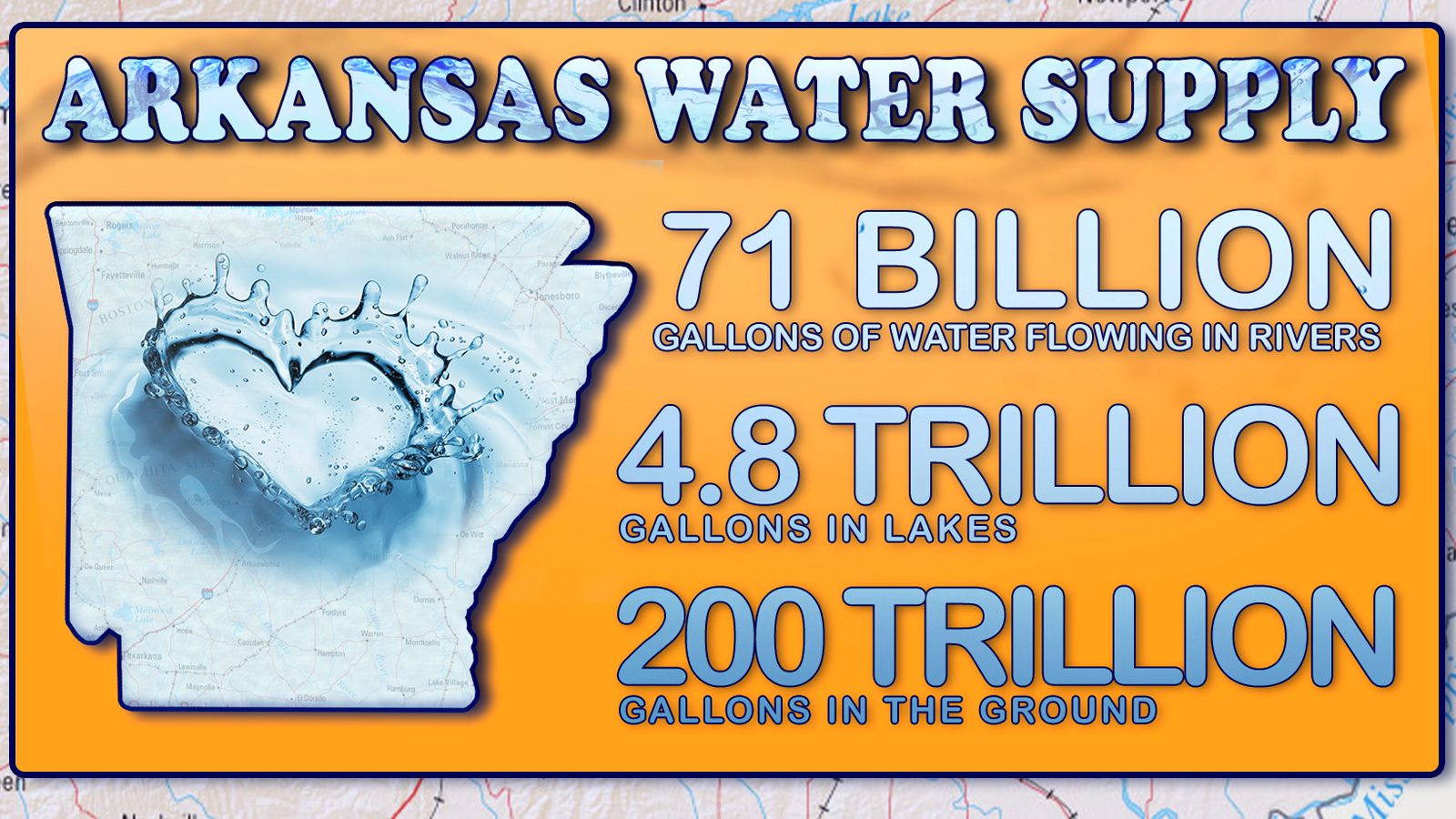
In Arkansas, there are on average 71 billion gallons of water flowing in rivers, 4.8 trillion gallons in lakes and 200 trillion gallons in the ground.
Our state is abundant with water resources and much of our economy depends on it. It is estimated Arkansans use 157 gallons of water every day.
August is National Water Quality Month. It reminds us to take a look at what our households and communities are doing to protect sources of fresh water.
The Clean Water Act, passed in 1972, establishes the basic structure for regulating discharges of pollutants and regulating quality standards for surface waters. But most people are unaware of the little ways they can pollute their water.
The Environmental Protection Agency (EPA) recommends using and disposing of harmful materials properly. When hazardous waste is dumped on the ground it can contaminate the soil. Contaminated soil then contaminates the groundwater or nearby surface water. A number of products used at home contain hazardous or toxic substances that can contaminate ground or surface waters, such as:
•Motor oil
•Pesticides
•Leftover paints or paint cans
•Mothballs
•Flea collars
•Household cleaners
•A number of medicines
Next, don't overuse pesticides or fertilizers. Many fertilizers and pesticides contain hazardous chemicals which can travel through the soil and contaminate groundwater.
It is also recommended to keep yard waste off the streets, sidewalks, and driveways, and gutters.
If yard waste such as grass clippings and leaves enters our storm drains, it flows untreated directly to creeks, streams, and lakes. As yard waste breaks down, nutrients that are released can lead to water pollution.
Overall, Arkansans have access to good quality water. But it is not a resource to take for granted. The University of Arkansas Cooperative Extension has extensive material on how to best conserve and protect our water at www.uaex.edu.
